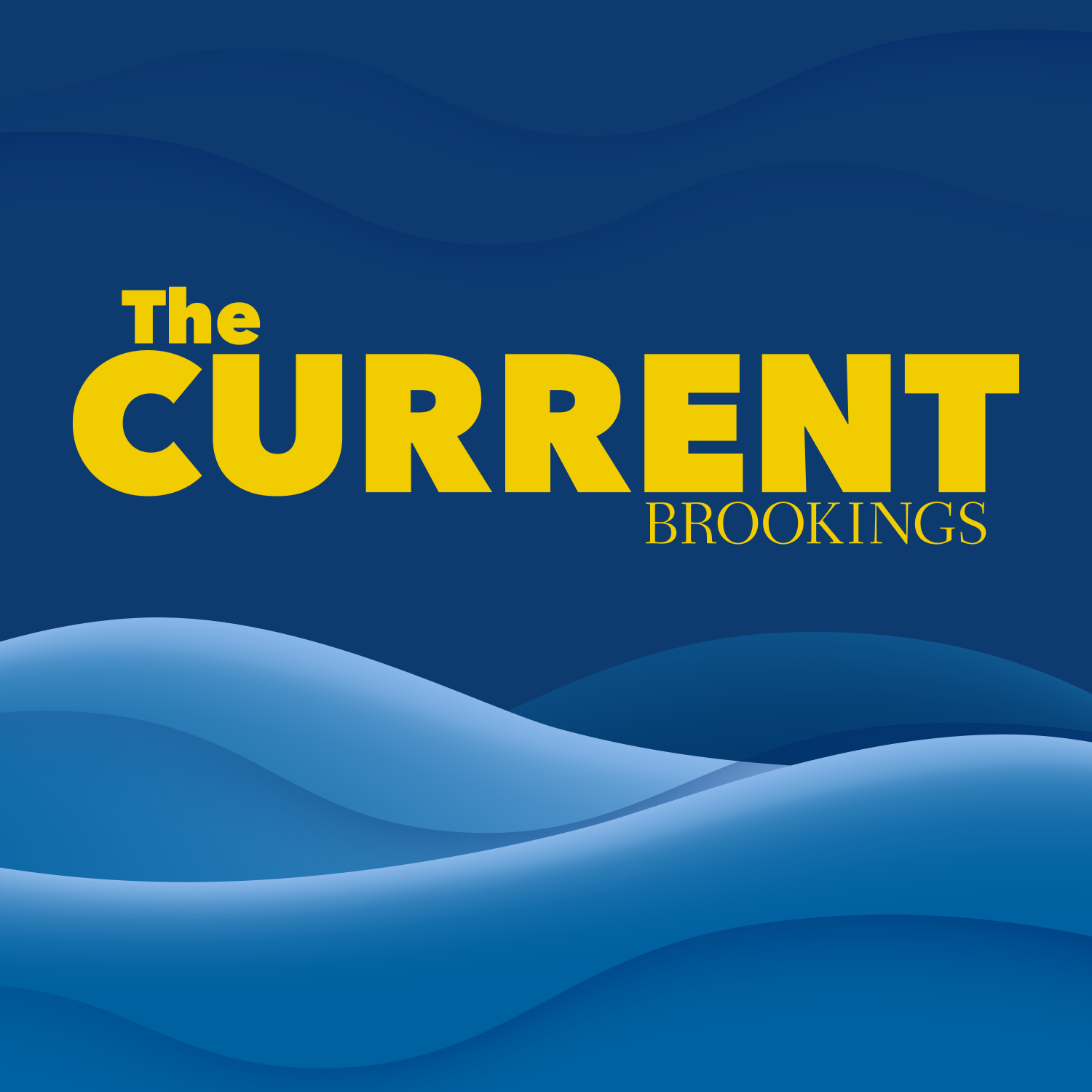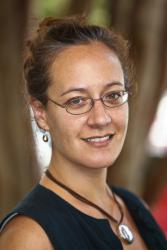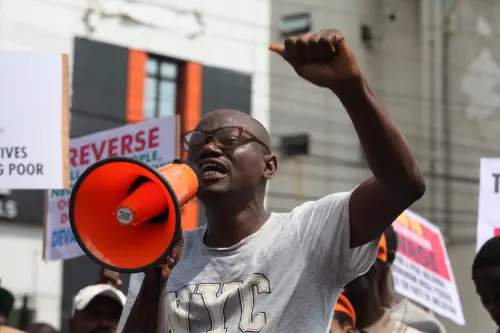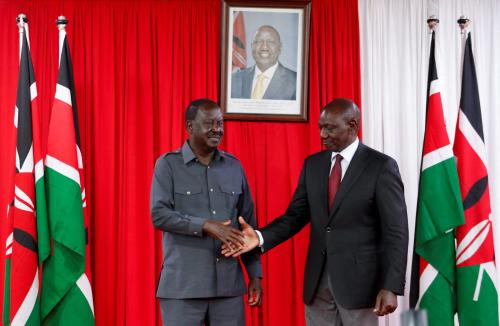The sudden death of Chad’s President Idriss Déby after 30 years in power has created a governance vacuum that will likely lead to years of instability, says John Mukum Mbaku, unless the military hands power over to the National Assembly, as called for in Chad’s constitution.
Related material:
- Entrenching democracy in African countries: Policy imperatives for leaders in 2021
- Threats to democracy in Africa: The rise of the constitutional coup
Listen to Brookings podcasts here, on Apple or on Google podcasts, send email feedback to [email protected], and follow us at @policypodcasts on Twitter.
Thanks to audio producers Gaston Reboredo and David Greenburg, Chris McKenna, Fred Dews, Marie Wilken, and Camilo Ramirez for their support.
TRANSCRIPT
PITA: The long-serving president of Chad, Idriss Déby, died on Tuesday, following clashes with rebel groups in the north of that country. President Déby recently stood for a sixth presidential term, and was projected to win those elections.
With us to explain President Déby’s legacy and what happens next in Chad is John Mukum Mbaku, nonresident senior fellow with the Africa Growth Initiative here at Brookings, and the Willard L. Eccles Professor of Economics and John S. Hinckley Fellow at Weber State University. John, thanks so much for talking to us today.
MBAKU: Thank you.
PITA: Chad’s President Idriss Déby has been in power for 30 years. Maybe you could start our listeners off with a little context about who he is and what his reign has meant for Chad.
MBAKU: Déby came into power in 1990 through a military coup. Unfortunately, his reign, like that of his predecessor, Hissène Habré, has not been good for most Chadians. His economic policies have not benefitted most people in the country.
Although Déby eventually legalized political parties and sought ways to introduce a pluralist democracy in Chad, he remained the dominant force and monopolized political spaces in the country until his death on April 20, 2021.
A new constitution was approved in 1996, followed by the country’s first multi-party presidential election, which was won by Déby in the second round. However, there were credible reports of widespread electoral fraud and intimidation of opposition political elites and their supporters. This intimidation of political opponents and the failure of the government to provide opportunities for other individuals to participate in government has been pervasive throughout the entire 30 years that Déby was in power.
In addition to that, Déby’s stay in power has not improved opportunities especially for vulnerable groups like girls and women to go to school and develop the skills they need to participate in the political system and also in the economy.
In presidential elections held on April 10, 2016, Déby captured 62% of the votes cast to secure a fifth term in office. The opposition argued that the vote counting for this election was not credible and that the election was marred by “an online blackout as access to the internet was cut and mobile phones were unable to send text messages.” This was most likely done by the government to make it possible for Déby’s political party to be the only one to be able to reach the electorate.
Also, the government banned protest marches; members of civil society campaigning against the president were rough handled; and hundreds of ballot boxes were said to have disappeared during the counting of votes.
Chad faces a lot of economic and political problems. Despite the fact that the country sits “atop reserves of some of the world’s most precious natural resources, including uranium and gold, and pumps about 130,000 barrels of crude oil a day, generating billions of dollars in annual revenues,” Chad remains one of the world’s poorest countries, according the United Nations Development Programme’s human development index.
In 2018, the Chadian parliament approved a new constitution that abolished the position of prime minister and allowed Déby to serve two more terms. Although civil society groups protested against the new constitutional changes, they were still approved by a 132–2 vote of the country’s parliament.
In addition to introducing a two-term limit for presidents, which had been eliminated in 2005, the new constitution abolished the constitutional court and the high court of justice and introduced a six-year presidential term to replace the five-year term that was in existence at the time. The new term limits, however, were not to be applied retroactively and as a consequence, Déby was eligible to serve two more terms after the 2021 presidential elections, effectively allowing him to remain in office until 2033.
The new constitution came into force in May 2018 and provided for a judiciary that is independent of the executive and legislative branches of government. However, that independence is weakened significantly by the fact that the president is granted the power to guarantee judicial independence. In addition, the president has the authority to name and dismiss most of the key judicial officials, including the chief justice. So, under those conditions, although the constitution guarantees judicial independence, in practice, judicial independence is not a reality in Chad. The country remains a highly centralized state in which the executive branch dominates the other branches of government—the judiciary and the legislature.
As reported by the U.S. Department of State’s Chad 2019 Human Rights Report, impunity remains pervasive throughout Chad—there are arbitrary and other politically motivated killings by state- and non-state actors; there is torture by security forces; and arbitrary and incommunicado detention by the government; as well as harsh and potentially life-threatening prison conditions.
In addition, the government has continued to censor the press and impose significant restrictions on citizens’ access to social network platforms. Substantial interference by the government with the rights of peaceful assembly and freedom of association, as well as restrictions on freedom of movement, violence against women and girls, and the failure by the government to prosecute or punish individuals who have committed human rights violations have created an environment that does not augur well for the holding of free, fair, credible and inclusive elections and the consolidation of democracy.
So, what we see is that 30 years of Déby’s government in Chad has not made significant improvements in those critical areas such as human rights, economic development, rights especially for girls and women, and other members of ethnic groups that are not associated with Déby’s own ethnic group.
PITA: Thanks for that background. According to the military, President Déby died from wounds sustained after visiting troops fighting an insurgency in the north of Chad. Who are these rebels and what is the fighting about?
MBAKU: Fighting in northern Chad began following the April 11, 2021 presidential election in which incumbent president Déby, was re-elected to a sixth term in office. The fighting was initiated by the Libyan-based Front for Change and Concord in Chad, which is usually identified by its French acronym, FACT. The fighting began in a region called Tibesti, which is located in the far northwest of the country.
After the April 11, 2021 border attack by members of FACT, FACT convoys entered Chad and proceeded to move towards the capital, N’Djamena. At least two countries—the UK and United States—withdrew their diplomatic staff from Chad because of the increasing instability. That was important primarily because it sent an indication to the rest of the world that the political situation in Chad was deteriorating.
By April 19, 2021, the frequency of clashes between rebel convoys and Chadian military forces had increased significantly. Rebel forces subsequently claimed that the Tibesti Region had been liberated and was now independent of Chad. Of course, the government disputed that claim. That same day, the Chadian army announced that 300 rebel forces had been killed and that five soldiers of the Chadian Armed Forces had also been killed. A spokesman for the Chadian Armed Forces also announced that 150 rebel fighters had been captured. Instability in the country significantly increased as a result of the clashes between the military and this particular rebel group. The name of the rebel group is actually Front pour l’Alternance et la Concorde du Tchad).
On April 20, 2021, the Chadian army announced that President Déby, who had been visiting the frontlines, had been fatally wounded and had died. His son, General Mahamat Déby Itno, was declared the interim president of a Transitional Military Council.
The rebel group FACT is a splinter group of the Union of Forces for Democracy and Development, which is the largest rebel group in Chad, and which was founded in 2006, and had been fighting to rid the country of what it believes is an authoritarian and tyrannous government led by Déby.
PITA: So, what now is the current situation in Chad in the wake of President Déby’s death?
MBAKU: The situation is not very encouraging. Part of the reason has to do with the fact that the governance vacuum created by the sudden death of the president is going to provide an opportunity for many groups that, up to this point, have considered themselves marginalized by the government, by the 30-year government of Déby. Many of those groups are going to start fighting to carve out a position for themselves in government. So, what we anticipate will happen is that there is going to be increased violence in the country.
However, despite his domestic problems and the fact that he was considered an authoritarian and oppressive leader by many people in Chad, Western powers considered him a key security ally. He was regarded by France, the U.S. and the EU as an important player in the struggle to bring peace to an area that is pervaded by terrorist and extremist activities.
However, Déby’s death, as I’ve just mentioned, has actually emboldened rebel groups that were fighting to oust him and his relatives, who had dominated the government, especially the security and intelligence services. In response to the announcement by the military that Déby’s son had been made the country’s interim leader, a spokesperson for the rebels stated that, quote, “Chad is not a monarchy. There is no dynastic devolution of power in our country.” The rebel forces noted that they are determined to continue their march to the capital and that could create more instability and make it much more difficult for the country to peacefully resolve the power vacuum created by the president’s death.
There are still questions regarding why the military chose to install the former president’s son as the interim president instead of following procedures established by the constitution to deal with a vacancy in the presidency. In fact, according to Article 81 of the 2018 constitution of Chad, the president of the National Assembly is supposed to serve as the interim president in the case of a vacancy in the presidency. And if that person is unable to do so, the first vice president should step in. Then, the interim president, is given at least 45 days and at most 90 days after the vacancy is opened to conduct elections and find someone to permanently replace the president and move the country forward. So, constitutionally, the army chief is not qualified to take over as the leader of Chad. Some observers have wondered if what the army is doing is actually a coup by the military to seize power from Déby.
The question one should ask here is, will the army remain loyal to Déby’s son and continue to fight the advancing rebels? Will the army dissolve parliament, abandon the constitution, and destroy any remnants of the country’s democratic institutions and proceed to institute total military rule in Chad? Or will the army work with civil society groups, as they claim to do, to develop and implement a transition to democratic governance? The only answer here is, that only time will tell.
We can ask ourselves, what about Chadians who have been fed up with Déby’s more than 30 years of authoritarian rule? Might they align themselves with groups that are calling for change and force the army to consider abandoning their support of what is looking like a Déby family dynasty? Or will they continue to fight against each other and create even more violence in the country. What it seems to me is that it appears that the country faces, at the very least, several years of instability that could threaten peace and security in Chad and the region.
Of course, Chadians could avoid this problem if they are willing to come together and try to find a peaceful way to resolve their problems and avoid the ethnic struggles that are going to issue as soon as the army takes over the government.
PITA: You mentioned concerns from observers that this may in fact be a military coup. What are some of the concerns about this military council and how likely they are to work toward a peaceful transition?
MBAKU: The first thing we need to look at is that there is a long history of so-called transitional military governments in Africa ending up taking over the government instead of returning the country to democracy. What we have seen in the past is that when a military government comes into place and claims that it is going to stay in power for just a little while – and this one says it is going to stay in power for 18 months and after that, it will hand over government to a civilian – what we have seen in the past is that most of those military governments have taken one of two routes:
One is for the military government to eventually become a permanent government and continue to rule, as it happened in Nigeria in the 1970s. Or, the military ruler, as it happened in Ghana and Egypt, the military ruler then resigns his military position – in this case here, it would be Déby’s son – resigns his position, constructs a constitution that would allow him to participate in elections, and then become a so-called civilian president with the support of the military. In which case, the military would be ruling the country through the pretense that the government is now a civilian government.
This is what I fear would happen in Chad unless the military is willing to simply hand over the government right now to the national parliament as the constitution demands. If the military decides to stay for 18 months, I’m afraid that in the end, the military would continue to become an important part of governance in Chad, and as a result, the country will be unable to move forward peacefully because other groups within the country would continue to fight against that kind of a government.
The most effective way forward for Chad is for the military to allow parliament to take over as described by the constitution. Under this scenario, the president of the National Assembly would be sworn in as the interim president. He would then proceed to organize and carry out a new election to choose what should be a government of national unity. A government of national unity would then be tasked with seeking peace with the rebels and inviting them and all other groups to work together to create a more peaceful and sustainable governing process for the country.
Chadians must understand and appreciate the fact that peace can only be achieved if the country is provided with institutional arrangements that make the government and the economy accessible to all citizens, regardless of their ethnic origins. It is especially important that girls be allowed to attend schools and develop the skills that they need to participate fully as adults in government and the economy. No group or individual should be allowed to dominate government and the economy.
PITA: All right. As you said, only time will tell. We’ll all be waiting and watching to see what happens there. John, thank you so much for talking to us about this today.
The Brookings Institution is committed to quality, independence, and impact.
We are supported by a diverse array of funders. In line with our values and policies, each Brookings publication represents the sole views of its author(s).







Commentary
PodcastWhat does President Idriss Déby’s death mean for Chad?
April 22, 2021
Listen on
The Current Podcast